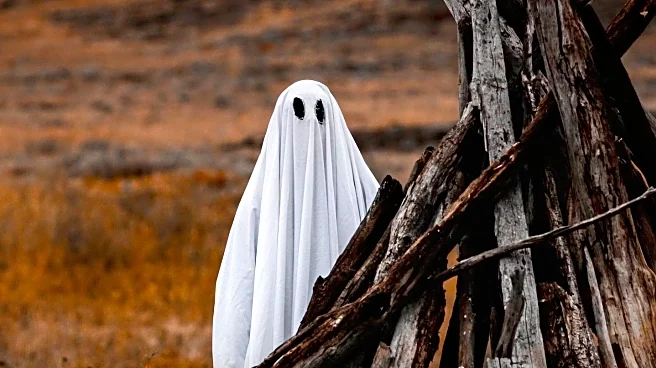What's Happening?
A new educational approach is being explored where students are taught about local ghost stories and urban legends as part of their curriculum. This initiative aims to delve into the sociological and psychological
roots of these tales, examining what they reveal about local communities. The curriculum includes analyzing stories and visiting sites associated with these legends, such as haunted woods or locations of supposed alien encounters. The course also incorporates historical research, using primary sources like old newspaper clippings to trace the origins of these legends. This method is designed to engage students with their local history and culture, encouraging them to care about their communities.
Why It's Important?
This educational strategy highlights the importance of connecting students with their local heritage and community identity. By studying urban legends, students gain insights into the cultural and historical context of their surroundings, fostering a sense of belonging and civic responsibility. This approach also enhances critical thinking and research skills, as students learn to differentiate between fact and fiction. Moreover, it addresses the modern challenge of digital disconnection, where individuals often know more about distant events than their own neighborhoods. By engaging with local stories, students are encouraged to participate in community life, potentially leading to increased involvement in local politics and volunteerism.
What's Next?
As this educational approach gains traction, it may inspire other schools to adopt similar programs, integrating local folklore into their curricula. This could lead to a broader movement of using cultural narratives to teach history and social studies, potentially influencing educational policies. Community leaders and educators might collaborate to expand resources and support for such programs, ensuring they are accessible to a wider range of students. Additionally, this initiative could spark interest in preserving local histories and traditions, encouraging communities to document and share their unique stories.
Beyond the Headlines
The study of urban legends also opens discussions on ethical and cultural dimensions, such as how these stories can perpetuate stereotypes or prejudices. For instance, legends that unfairly target minority groups can be examined to understand and challenge societal biases. This aspect of the curriculum can promote inclusivity and cultural sensitivity among students. Furthermore, the dynamic nature of oral storytelling offers a unique opportunity to explore how narratives evolve over time, reflecting changing societal values and concerns.









